Queensland election: Labor’s populist splurge to put state’s credit rating at risk
Steven Miles’s populist promises will add an extra $9bn to Queensland’s debt bill, prompting warnings from rating agencies that the state’s AA+ rating could come ‘under pressure’.
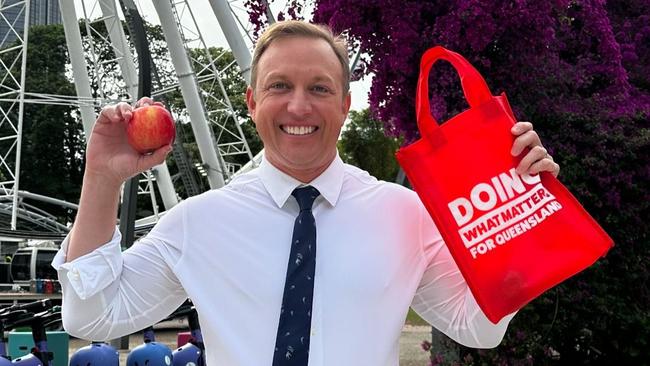
Steven Miles’s populist promises, from taxpayer-funded petrol stations to free school lunches, will add an extra $9bn to Queensland’s already rocketing debt bill, prompting warnings from rating agencies that the state’s AA+ rating could come “under pressure”.
Despite raking in billions of dollars in extra revenue from coal mining royalties after introducing a super-profit tax two years ago, the state Labor government will embark on a fresh borrowing binge to fund cost-of-living handouts and infrastructure projects.
Queensland’s total government debt is already predicted to surge to $172bn by mid-2028, but Treasurer Cameron Dick on Monday flagged this would balloon further by the end of the state election campaign.
Labor has already made $8.9bn worth of election promises, including making 50c public transport fares permanent and opening 50 bulk-billing GP clinics, with 11 days of campaign announcements left until polling day. Mr Dick said Labor’s election commitments would be funded through extra borrowings.
“Some of that will be over the forwards, a little bit will be beyond the forwards, but it’ll be $8.9bn in additional borrowings and we’ve been absolutely upfront,” he said.
“You could not have a darker or less transparent opposition than David Crisafulli and LNP. They can’t even tell you what their total election commitments are.
“I’ll tell you what they are. It’s north of $17.2bn and they certainly can’t tell you how they’re going to pay for it.”
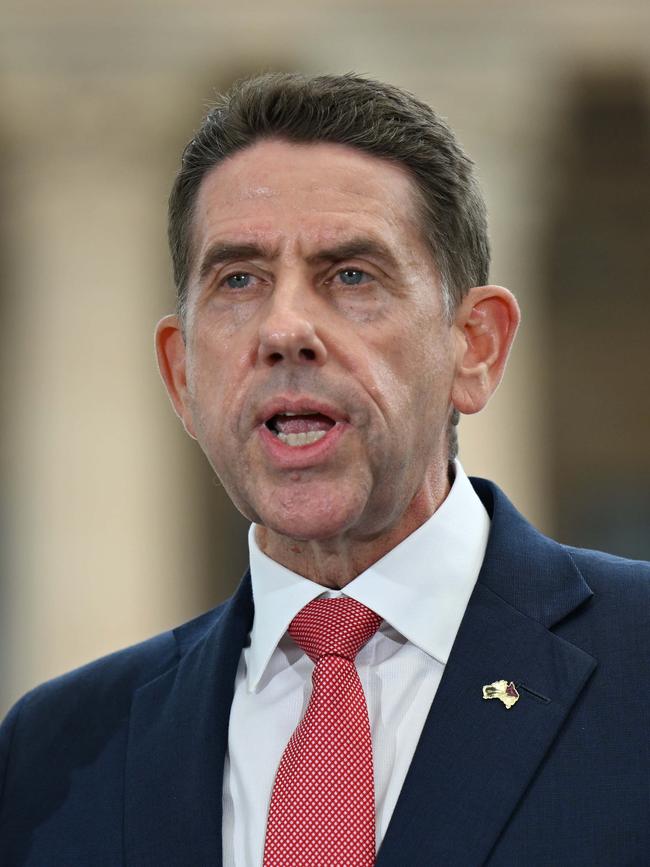
S&P Global Ratings analyst Anthony Walker said the state’s AA+ rating was confirmed in early September on the expectation that debt levels would peak at about 140 per cent of operating revenues and the budget would remain in cash surplus. That credit rating would be at risk if the government funds its commitments through borrowing.
“If we did see a lot of new spending funded through debt, whether it’s operating or infrastructure spending, we would see bigger deficit and higher debt than we’re currently expecting,” he said. “We could see a risk to the credit rating if the fiscal performance underperforms our forecasts, which were based on the budget, or if debt levels rise beyond our forecasts and any unfunded commitments that had been announced in the budget could be driving those.”
Coal royalties funnelled an extra $25.9bn into state government coffers in the past two years, which Mr Dick said had been spent on cost-of-living relief – such as $1000 energy rebates and a 20 per cent cut to car registration fees – as well as funding the state’s “massive infrastructure program”.
“We’ve used those royalties to help support building Queensland for the future, programs like CopperString, like the Fitzroy at Gladstone water pipeline,” he said.
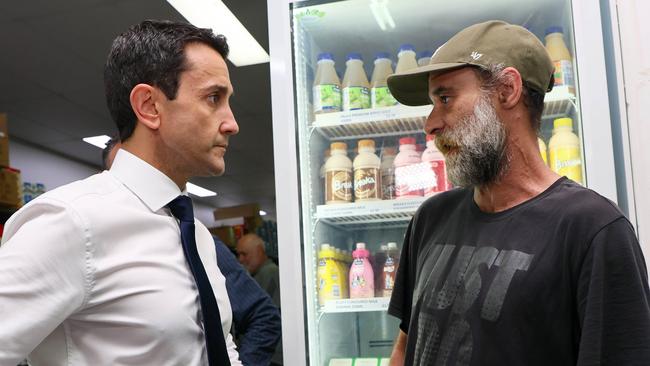
Mr Crisafulli pledged to pay down the Queensland government’s existing debt, and reduce future debt, but would not say how or by how much. He said the LNP would scrap Labor’s Pioneer-Burdekin pumped hydro project, which has been forecast to cost up to $24bn, but could not say how much the LNP’s alternative plan would cost. He said he would re-establish a productivity commission to focus on cutting regulation, end the days of “drunken spending” on consultants, and projects would not blowout without ministerial accountability.
“If you continue to grow the economy, you respect people’s money, and you don’t blow projects out that does give you capacity to pay down debt,” he said. The LNP’s election costings will be released later in the campaign, and Mr Crisafulli said some of the opposition’s promises would be funded by borrowing, insisting Queenslanders did not mind borrowing to build “generational infrastructure”.
“If you’re borrowing, there needs to be generational equity … you don’t borrow to go and pay for your everyday expenses,” he said. He said borrowing would be used for capital expenditure, not for paying operational expenses.
Asked later to clarify whether he would rule out borrowing to pay for operational costs – as the Labor government is doing – he said the LNP was targeting fiscal surpluses, but would not definitively rule out borrowing to fund day-to-day expenses.
“If you’re hitting operational surpluses you don’t have to, and that’s where you want to head,” he said. Mr Dick said the LNP pledge would force cuts, because the state’s budget was predicted to be in deficit for the next two financial years. “If David Crisafulli does not want to borrow for operational costs, then he must immediately cut $3bn from the Queensland budget,” he said.
Opposition Treasury spokesman David Janetzki has not appeared with Mr Crisafulli since the official election campaign began nearly a fortnight ago, but the Opposition Leader said he would be the “most qualified person to be treasurer in a generation” and he looked forward “to him joining the campaign more in the future”.
Former commonwealth Treasury economist and director of Adept Economics Gene Tunny said the lack of debt-reduction strategies from both major parties was “very disappointing”. “It’s not just that they don’t have a plan to pay down debt, they don’t even have a plan to stop it growing,” he said. “Whichever party wins they will face tough decisions.”

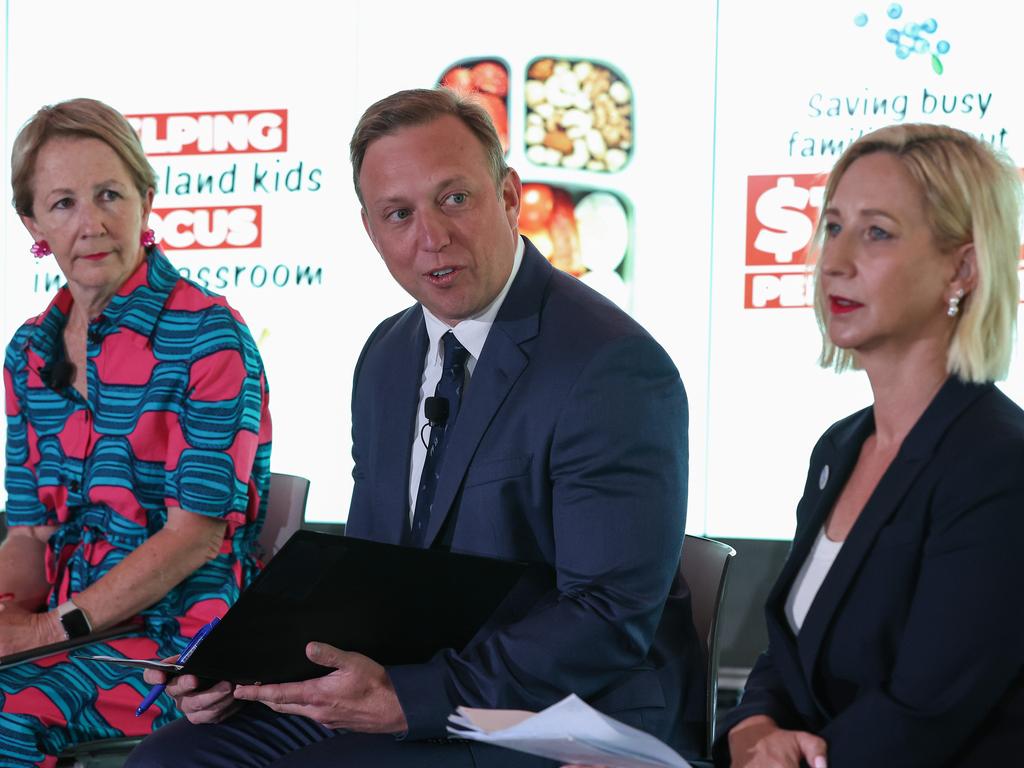
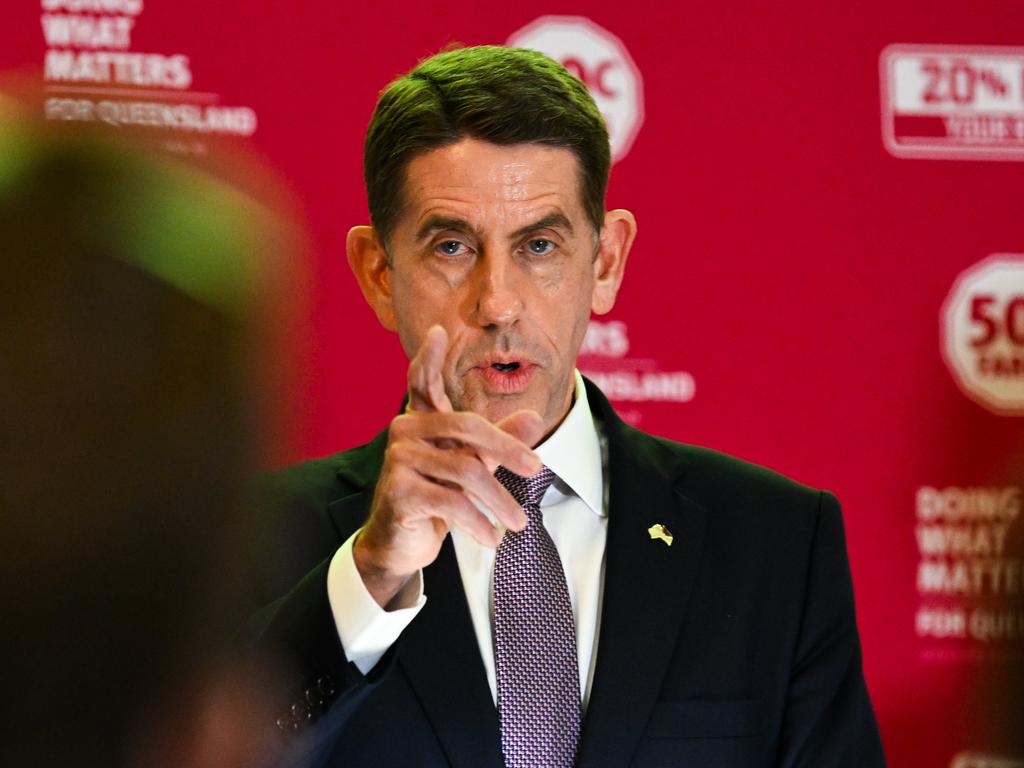




To join the conversation, please log in. Don't have an account? Register
Join the conversation, you are commenting as Logout